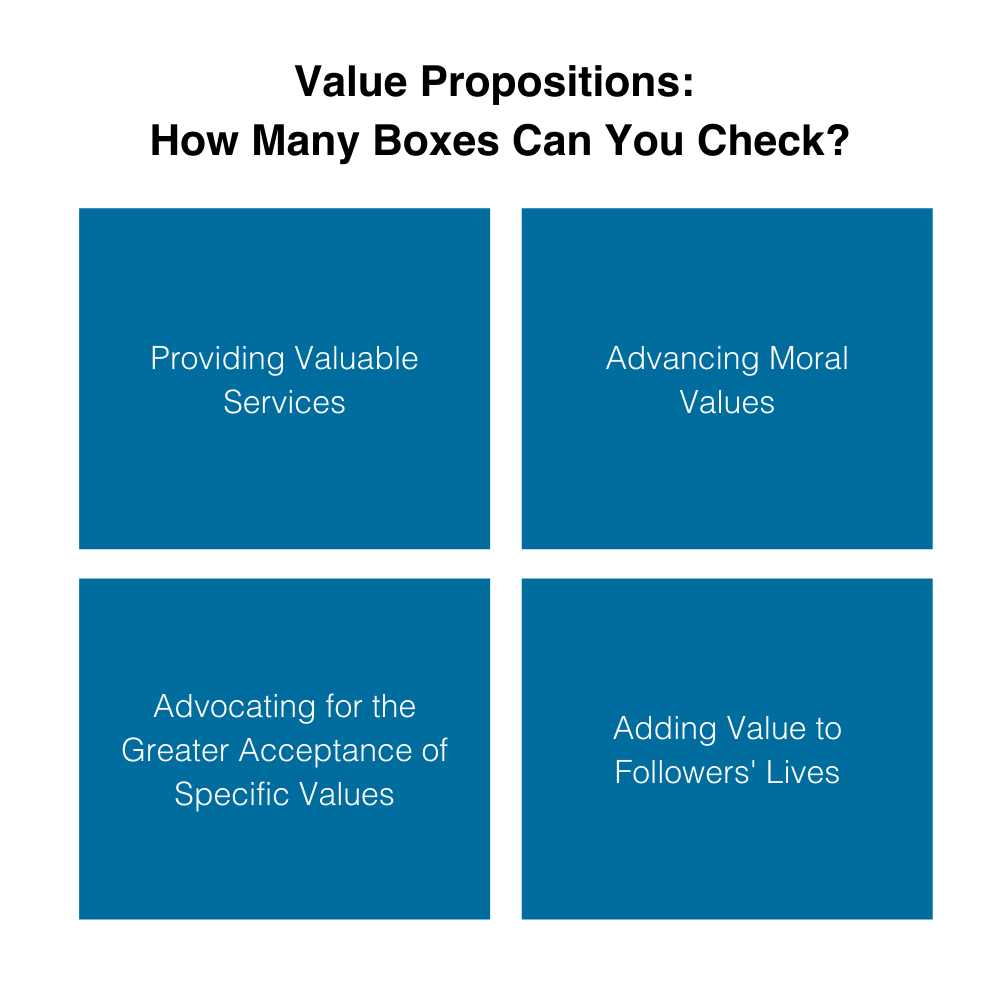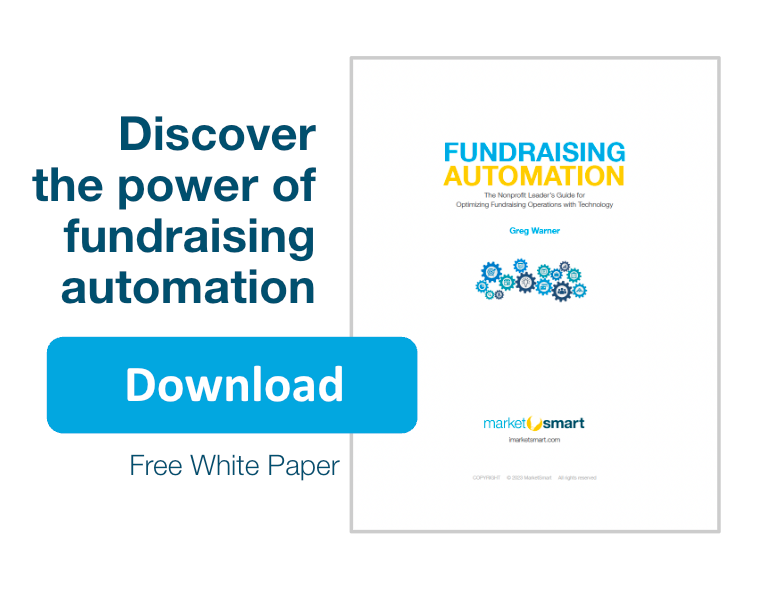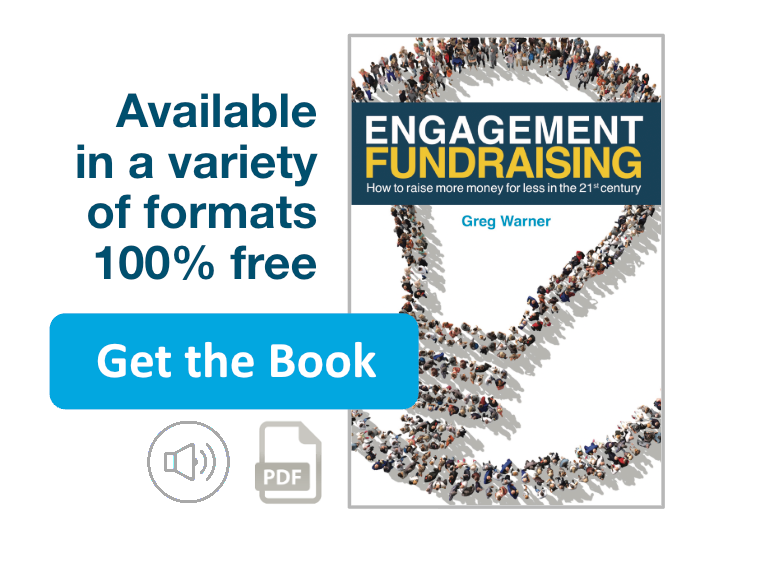Donors make more personal and practical calculations in their giving decisions than most organizational and advancement leaders recognize. Alumni most likely to give to their alma maters, for instance, are those who believe that the lasting value of their education greatly outweighed the cost – no matter how much they paid. Those that believe the cost outweighed the value are highly unlikely to give, no matter how little they paid. This explains why some alumni continue to give generously to distinguished deep-pocketed schools, and some refuse to subsidize needy ones.
Philanthropy correlates primarily with four different value propositions.
1. Providing valuable services: This includes directly – to students, patients, patrons of cultural institutions, beneficiaries of social services, and others – and indirectly to the general betterment of community and society
2. Advancing moral, ethical or civic values: This includes faith-based institutions, military academies, or any organization which so articulates them
3. Advocating for the greater acceptance of specific values: This includes causes advocating greater social justice for marginalized populations, DEI, gender and sexuality choice, as well as a greater awareness of looming consequential issues like climate change
4. Adding value to followers’ lives: This is achieved by creating communities of shared purpose in which adherents take great delight or find comfort by simply being among supportive kindred spirits or pursuing shared passions; some recent studies show that many people are more motivated to give because of the direct personal benefits of being in community than by the tenets or missions of the organizations that have gathered them together, including churches.
The most successful fundraising organizations not only offer all or most of these value propositions but also show how they can be advanced in measurable ways through specific programs and initiatives. They know that a few will give to the institution to advance all of them, while most will be more animated by one of them. This is how great coalitions are formed, by providing many portals of purpose through which different constituents can enter and find their home, yet still be under one strategic roof.
Sustained fundraising success is about creating the conditions that allow philanthropy to flower naturally. The smartest organizational leaders learn what their value propositions are by asking their adherents what matters most to them and what has stood the test of time. That testimony, when respected and adopted as an institutional ethic, forms a powerful organic brand and a compelling, multi-dimensional value proposition.

Jim Langley is the president of Langley Innovations. Langley Innovations provides a range of services to its clients to help them understand the cultural underpinnings of philanthropy and the psychology of donors and, with that knowledge, to develop the most effective strategies and tactics to build broader and more lasting communities of support. Jim has authored numerous books including his most recent book, The Future of Fundraising: Adapting to New Philanthropic Realities, published by Academic Impressions in 2020.
Related Resources:
- Webinar: 4-Step Process for “Reimagining Fundraising Operations”
- How nonprofit organizations can provide more value to generate more revenue in 5 simple steps
- Value Propositions in Fundraising: New Study Shows Nonprofit Organizations Can Fall Short in Making the Case to Donate





